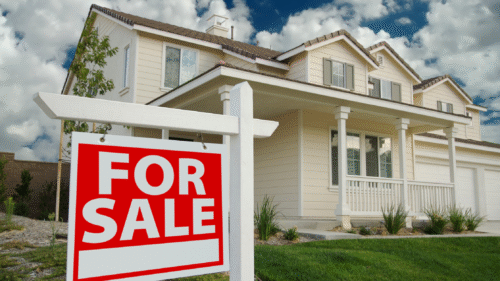When buying a home in New Zealand, it’s easy to get caught up in the excitement of open homes and property listings. However, one crucial step that should never be overlooked is a Pre-Purchase Building Inspection. This essential service can protect your investment, uncover hidden issues, and offer peace of mind before signing on the dotted line.
What is a Pre-Purchase Building Inspection?
A Pre-Purchase Building Inspection is a thorough assessment of a property’s condition, carried out by a qualified Building Inspector. It is a crucial part of the due diligence process for New Zealand homebuyers.
This inspection identifies existing defects or potential problems in residential and commercial buildings before purchase. From outdated wiring to unseen water damage, this report helps buyers make informed decisions.
What Does a Pre-Purchase Building Inspection Report Include?
Visual Inspection
The inspector visually assesses all accessible areas, including walls, ceilings, floors, roofing, doors, and windows.
Structural Assessment
Checks for signs of foundational movement, sagging beams, or other structural deficiencies in the building construction.
Moisture Damage Check
A crucial step in the process, identifying signs of water ingress, rot, and dampness that may compromise the building material or structure.
Electrical and Plumbing Systems Evaluation
Basic inspection of wiring, outlets, visible plumbing, and drainage systems to flag potential safety hazards.
Why You Should Get a Pre-Purchase Building Inspection
Protect Your Investment
Homes are significant financial commitments. A pre-purchase building inspection ensures you’re buying a property worth its price.
Avoid Hidden Costs and Surprises
What looks like a dream home could be hiding costly repair issues. An inspection report helps avoid unexpected repairs later.
Ensure Safety and Structural Integrity
Your family’s safety matters. Identifying hazards like faulty wiring, mould, or structural damage can prevent future disasters.
How to Choose the Right Building Inspector in New Zealand
- Qualifications and Experience: Ensure your inspector is qualified, highly-skilled and knowledgeable about New Zealand building regulations.
- Reputation and Reviews: Check online reviews and ask for referrals.
- Cost and Services Included: Get a detailed breakdown of the pre-purchase building inspection cost and what’s covered.
Common Issues Found During Pre-Purchase Inspections
Foundation Cracks and Structural Issues
These can affect a building’s long-term stability and are often expensive to repair.
Roofing and Gutter Problems
Damaged or poorly maintained roofs can lead to leaks and water damage.
Moisture and Mould Concerns
Often found in bathrooms, basements, and poorly ventilated areas, a risk to health and building material longevity.
Electrical and Plumbing Defects
Old or DIY wiring, clogged drains, and leaking pipes are common issues found.
If we identify any obvious electrical or plumbing defects, we will bring these to your attention and recommend further inspection by licensed electricians and plumbers.
How Much Does a Pre-Purchase Building Inspection Cost in New Zealand?
Pre-purchase building inspection costs vary depending on: – Location (Auckland, Christchurch, Wellington) – Property size and type – Accessibility of certain building areas
Average Cost: Typically ranges from NZD $400 to $800 for a standard building inspection report. We recommend contacting us directly to confirm the exact cost based on your property type, location, and specific needs.
What to Do After Receiving the Building Inspection Report?
Understanding the Findings
Inspections are limited to what can be seen and accessed. Your inspector may use tools like moisture meters or thermal imaging and will note any concerns or risks. If important areas like subfloors or roof spaces couldn’t be accessed, further specialist or invasive inspections may be recommended.
Negotiating with the Seller
Depending on the findings and the seller’s position, the report may be used to open discussions about pricing or necessary repairs, but outcomes can vary.
Is a Pre-Purchase Building Inspection Required by Law in New Zealand?
Legal Requirements vs. Best Practice
While not legally mandatory, it is considered best practice and highly recommended by real estate professionals.
The Risks of Skipping the Inspection
Buying without a pre-purchase inspection could result in high repair costs and even safety risks.
Why Choose Jim’s for Pre-Purchase Building Inspections?
At Jim’s Building Inspections New Zealand, our certified inspectors follow industry-leading standards. We provide comprehensive pre-purchase building inspection reports that help buyers make confident decisions.
The Expertise of a Certified Inspector
Our team is trained to identify issues others may miss, ensuring no corner is left unchecked.
Potential Pitfalls of DIY Inspections
Without the right tools and experience, DIY inspections miss critical issues. It’s always better to trust a professional.
Conclusion
A Pre-Purchase Building Inspection is an investment in your peace of mind. In New Zealand’s diverse housing market, it’s essential to ensure that your dream home isn’t hiding costly defects or compliance issues.
Whether you’re buying a new residential building or an older commercial building, getting a professional inspection ensures safety, quality, and smart financial planning.
Let Jim’s Building Inspections help you make informed property decisions across New Zealand.
Note: The information provided in this blog is for general purposes and is not indicative of all areas serviced by Jim’s Building Inspections. Some services may fall outside our licensed areas and require other professional services to be arranged. Please contact us to discuss your specific needs.
FAQs
To assess the property’s condition and identify defects before purchase.
Most standard inspections take 2 to 3 hours, depending on the size of the property, any accessibility issues, and the time required to prepare a detailed report off-site.
Not required. The inspector will call after sending the report and can go through the findings with you.
Yes, the report may support renegotiation or requests for repairs, depending on the findings and the seller’s willingness to negotiate.
You can walk away from the deal or negotiate solutions with the seller.
Look for certification, experience, and positive client reviews.
Generally, the report reflects the condition at the time of inspection; warranties vary by provider.
DIY inspections are risky and often miss critical defects. Always hire a qualified professional.



